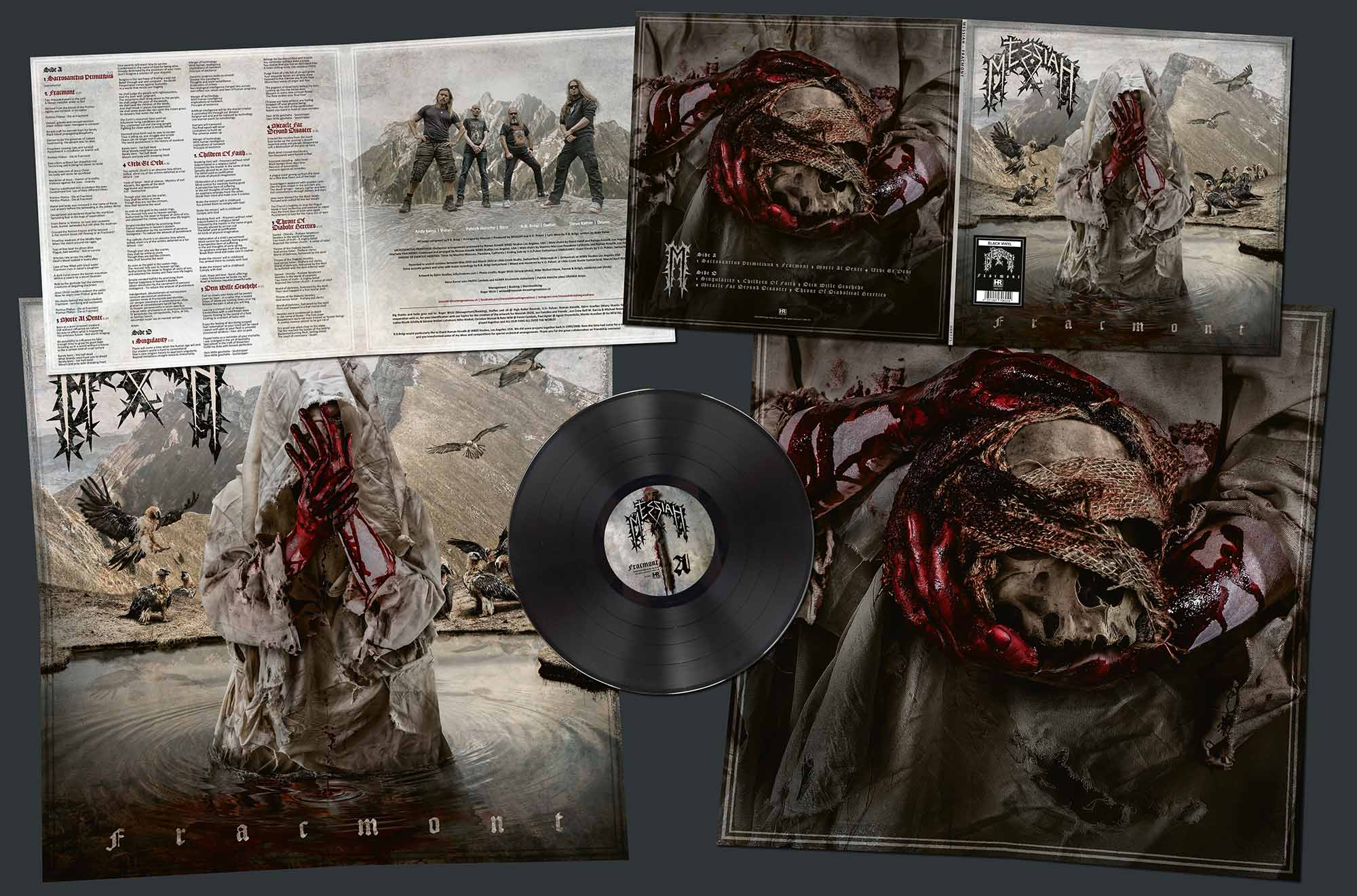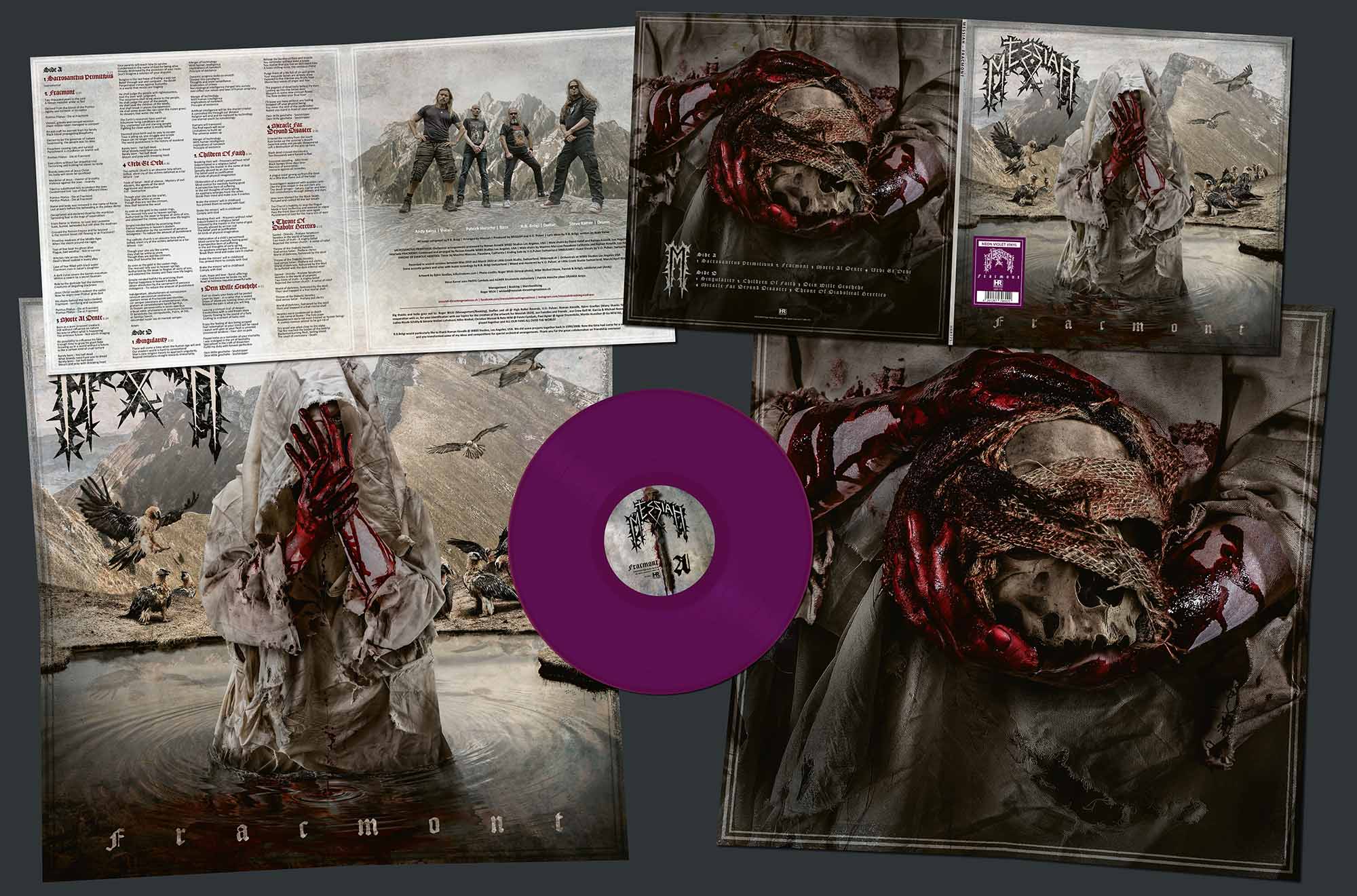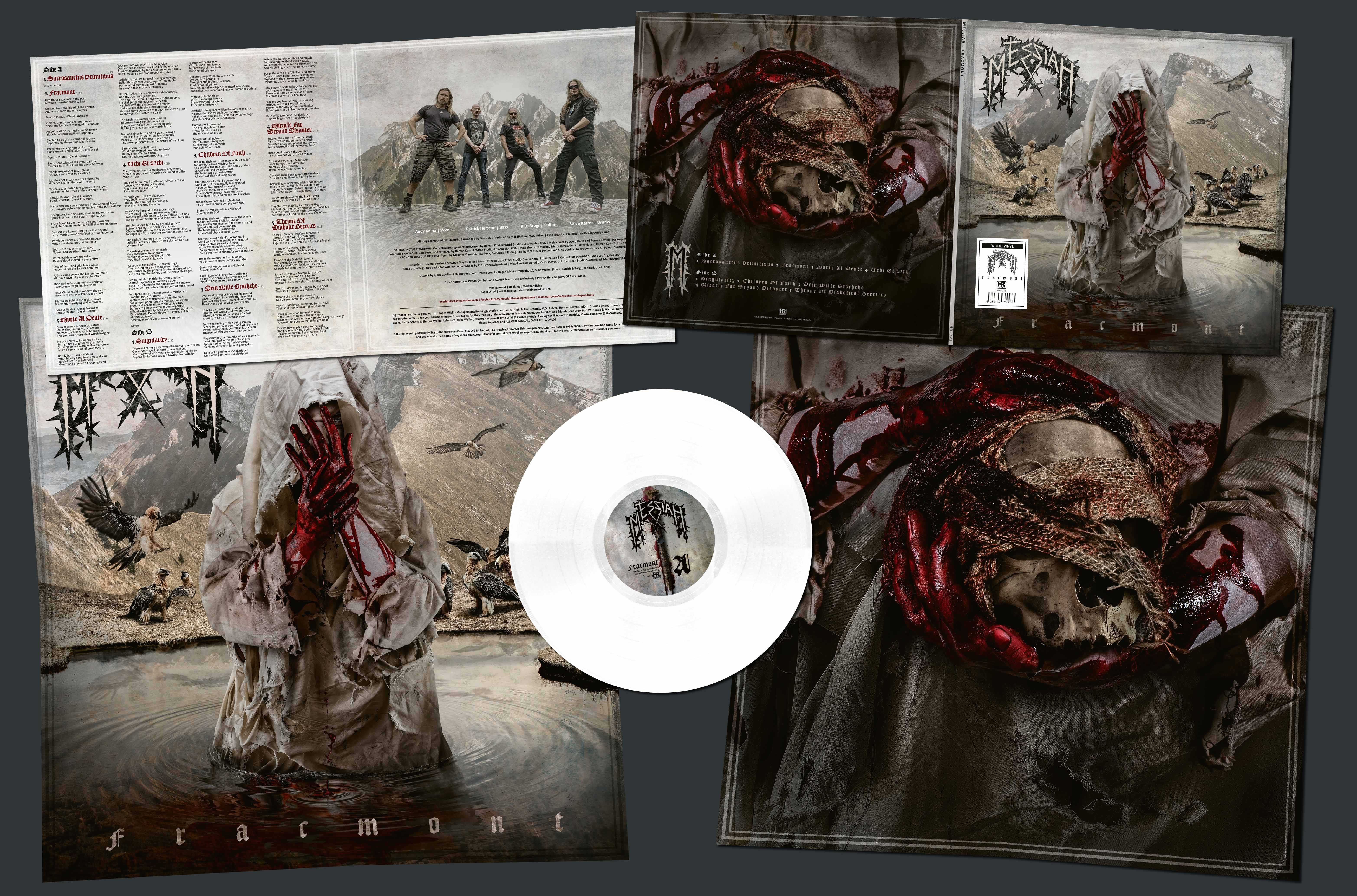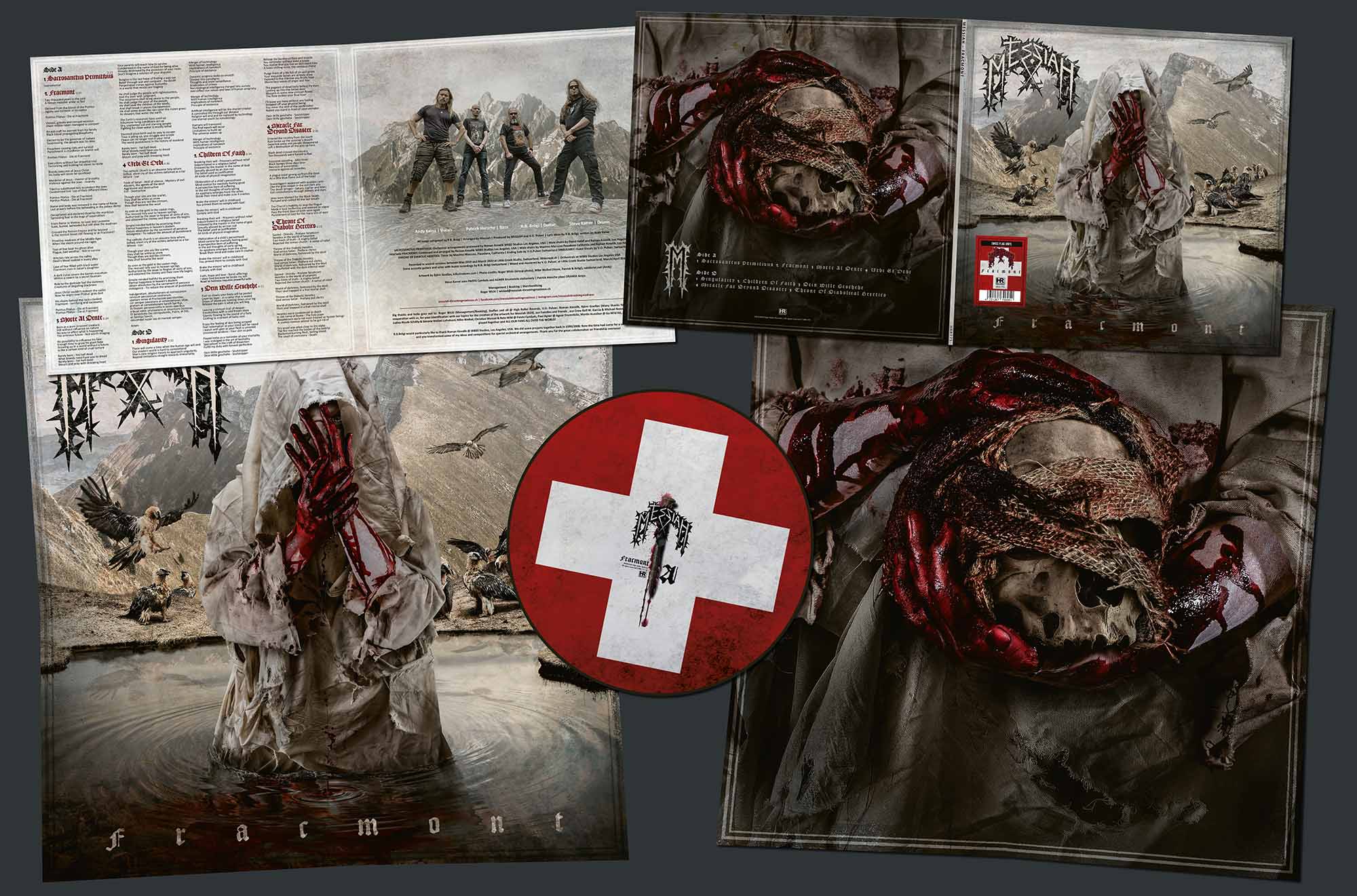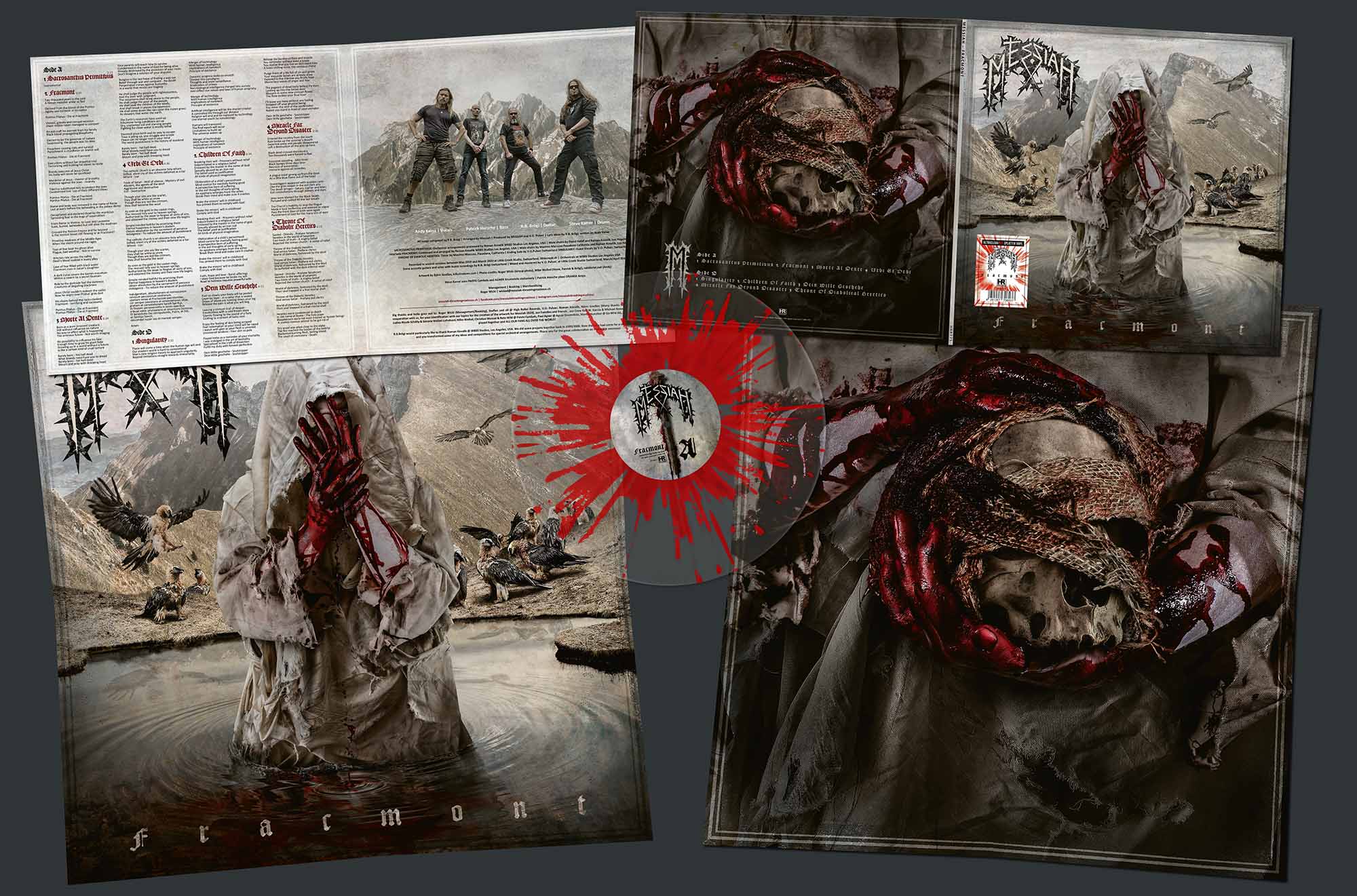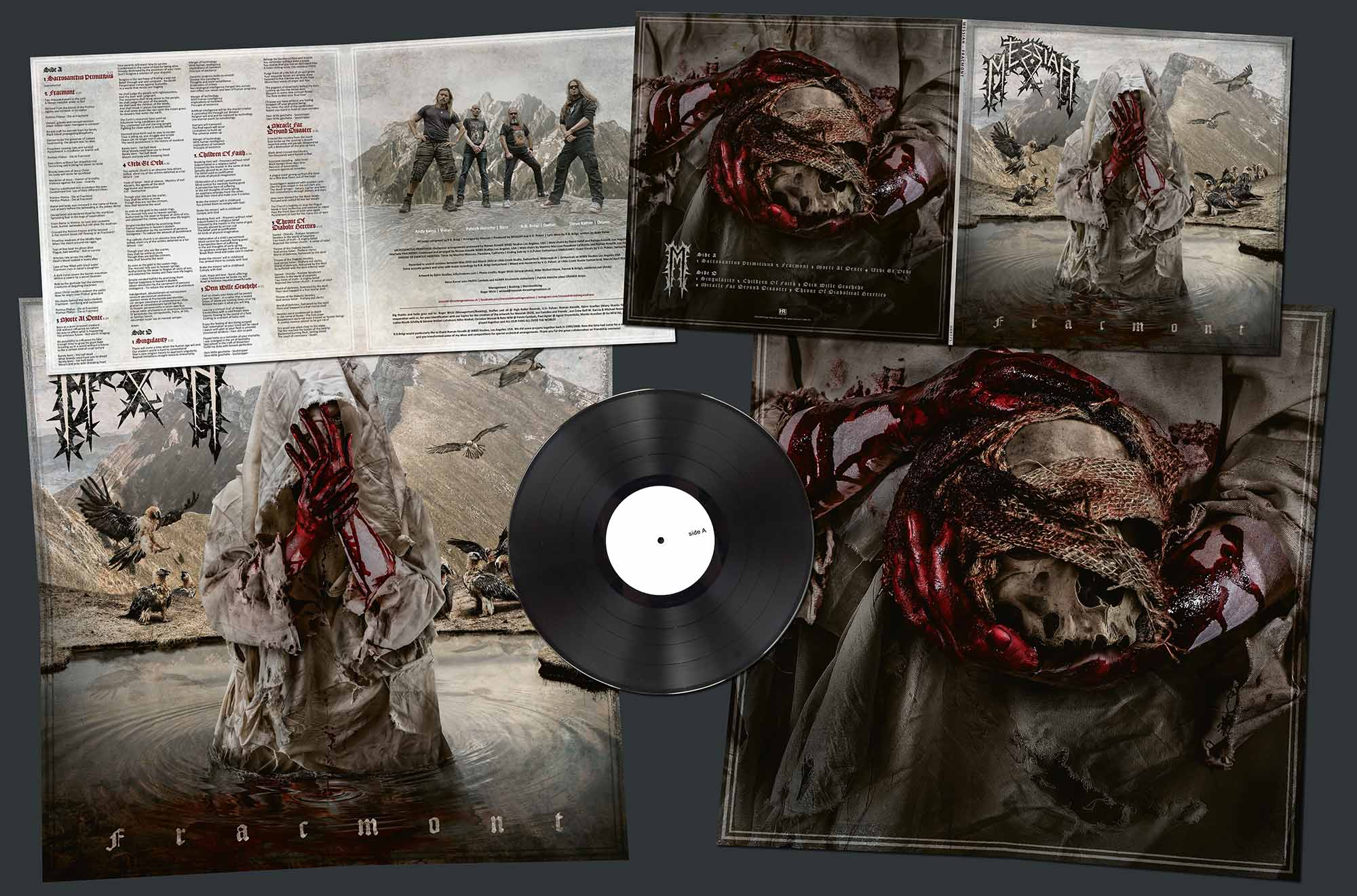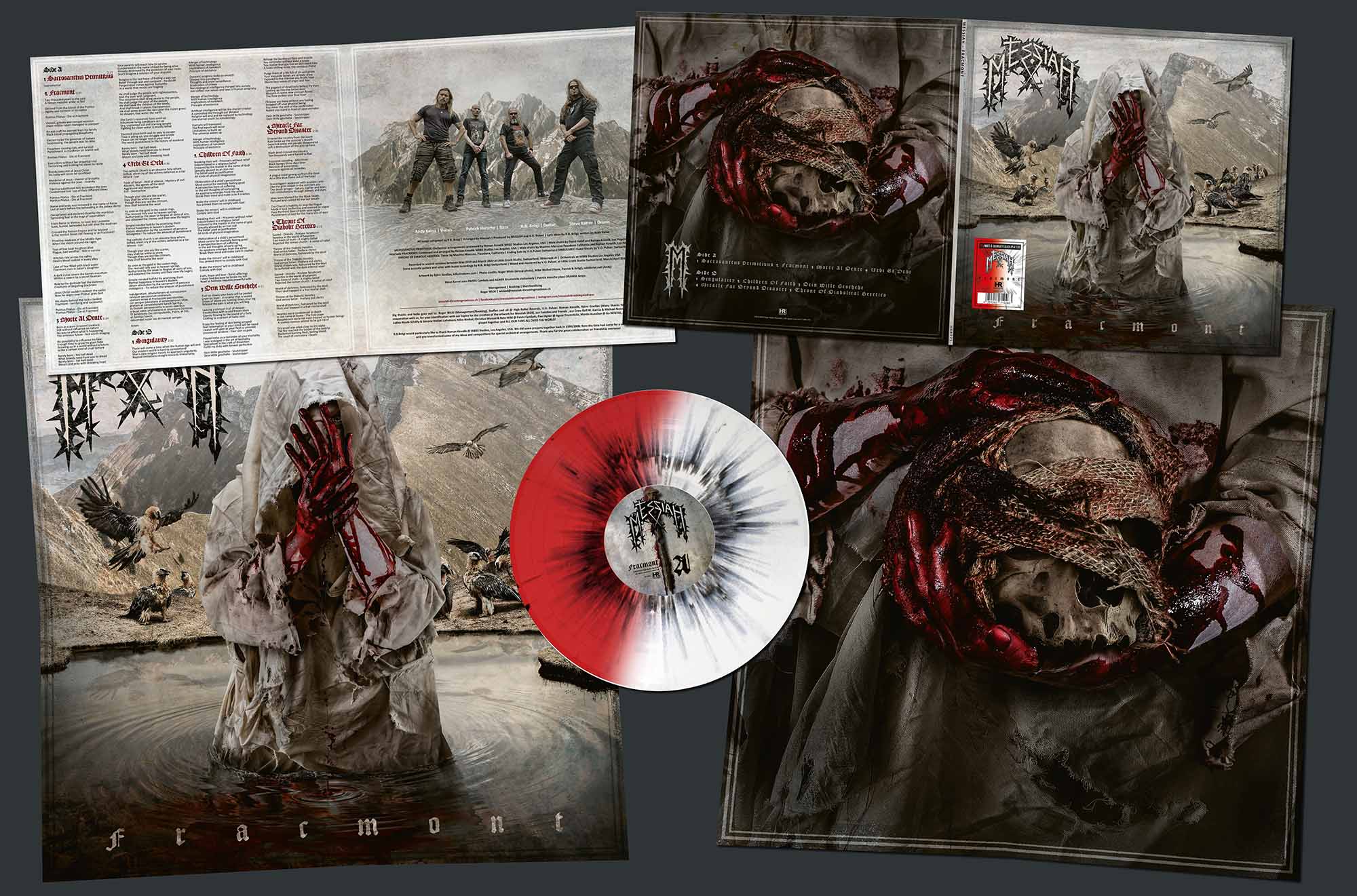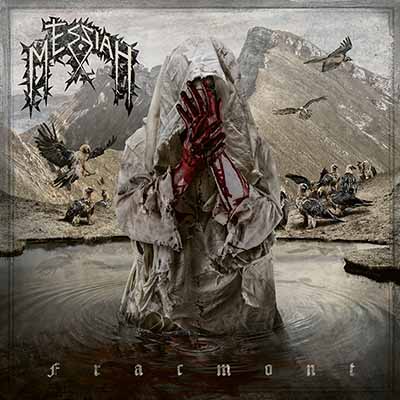 | ||||
| MESSIAH - Fracmont LP | |
HRR 775LP, ltd 1300, 300 x black, 350 x neon violet, 200 x white, 300 x "Swiss Flag" picture + 150 x transparent ultra clear with red splatter vinyl (HRR mailorder), gatefold cover, double sided poster, 2nd pressing: LTD 500, 200 x black + 300 x red/ white bi-color with black splatter vinyl | |
| Andy Kaina - Vocals Brögi - Guitars Patrick Hersche - Bass Steve Karrer - Drums | |
| 01 Sacrosanctus Primitivus 02 Fracmont 03 Morte Al Dente 04 Urbi Et Orbi 05 Singularity 06 Children Of Faith 07 Dein Wille Geschehe 08 Miracle Far Beyond Disaster | |
| black and neon violet vinyl SOLD OUT swiss flag, splatter + white vinyl LAST COPIES 2nd pressing: AVAILABLE | |
With acts such as Hellhammer/Celtic Frost and Coroner but also more obscure outfits such as Fear Of God, Excruciation or Infected Switzerland has always been a fertile breeding ground for Extreme Metal. Messiah were formed in 1984 and issued two truly ground breaking records on Chainsaw Murder Records, »Hymn To Abramelin« in 1986 and »Extreme Cold Weather« a year later. In the early 1990s Messiah signed to Karl Walterbach’s Noise Records label and issued three more full-length albums: »Choir Of Horrors« (1991), »Rotten Perish« (1992) and »Underground« (1994).
A few years back Messiah decided to reform in the original line-up of their Noise Records albums with Andy Kaina on vocals, Steve Karrer on drums, Patrick Hersche on bass and band founder Brögi on guitar. The band’s original aim was to just have some fun and play sporadic live gigs for their dedicated fan base in Switzerland. Lavish re-issues of »Hymn To Abramelin« and »Extreme Cold Weather« on High Roller Records followed.
“The Messiah re-union came about by chance,” explains guitarist Brögi today. “A good friend of mine, Amadé Bühler, is running the ‘Mega Mosh Festival’ in Luzern. One day he asked me if I wanted to run a stall selling old Messiah merchandising. In 2016 I declined. In the year 2017 he asked me again and I finally gave in. I was working the stall along with Andy and Patrick and fans bought quite a lot of our old unsold merch. Amadé, however, had bigger plans and asked us if we would not be interested to play two or three Messiah songs on his ‘Winter Mega Mosh’ bash? I found this idea very tempting and invited the entire line-up of our Noise Records releases for a barbecue at my house. This was in the summer of 2017. In autumn we entered a rehearsal room and had so much fun together that we rehearsed a complete live set. At this point in time, however, we had not decided on a proper re-union. In December 2017, we did indeed play a full-blown show at ‘Winter Mega Mosh’. It was a secret gig, not announced whatsoever. We really did have a blast and the show was very successful. In January 2018, we had a serious band meeting about a possible re-union of Messiah. It was a very democratic band meeting and some members did have second thoughts about the whole affair. But in the end we all agreed on reforming but with bearing in mind that we all have regular jobs as well, so time for the band is limited. As soon as the press release was issued, offers for live gigs started to fly in. Rehearsing turned out to be a problem because all of us are so busy. During the re-union phase we did play weekend gigs at festivals, bigger tours are just not possible for us. Unfortunately. This is why we could not agree to do the Latin America tour for now. We did play the Maryland Death Fest though and had to spend a whole week doing that.”
The home base for Messiah remains Switzerland though, and it is a very healthy base as Brögi explains: “We do not play that often in Switzerland, it is one show per year, basically. But at these club shows we do draw 500 punters. Other bands of our (modest) stature are happy to get 50 or 100 spectators. Merch sales in our home country are also surprisingly healthy.”
When the band met in January 2018 to talk about the future of Messiah, it was one of Brögi’s conditions to work on new material as well. He summarizes: “Opinions in the band were divided at first. But we had already decided to promote our re-union by announcing a new album. At the time, however, we did not even know what would come out of it. But when you listen to »Fracmont« today, it was worth all the effort. We are totally happy with what we have achieved more than 25 years after our last studio album was released.”
The songwriting for »Fracmont« (the ancient name of mount Pilatus near Luzern in Switzerland) was according to guitarist Brögi a very open process: “We had no master plan about the musical direction of the album whatsoever. But this is the usual approach of Messiah. We just play what we like and have no preconceptions about which way to go musically. We all have changed over the years. This may sound too simple but »Fracmont« represents Messiah in the here and now. Regarding style, I can only speak for myself, but I still love the bands of my youth. I just play what I like, I don’t copy any current trends. On the other hand, I don’t want to become a parody of my younger self also.
The songwriting process was different this time around, due to restrictions of rehearsal time. I recorded my ideas at home between December 2018 and January 2019. This was followed by a phase with all band members contributing. This involved a lot of re-arranging as the guys had a lot of input. This was a long and difficult phase – but in the end it was worth every single minute.”
“I would describe the new material as being ‘typical’ Messiah,” continues Brögi. “It is an (unintended) mix of our different epochs. Even going back to the very early days, but without those chaotic elements. I am of the opinion that it all sounds a bit more harmonic nowadays, the material is much more structured. Albeit it’s still very heavy stuff. Andy’s vocals have become much stronger and more original. Lyrically we have stayed true to our roots.”
“Throne Of Diabolic Heretics” is one of the stand-out tracks on »Fracmont«. One of the most unusual songs too, featuring an extensive doom part. It’s almost classical Doom Death much in the style of Dream Death or mid-period Celtic Frost. Very strong stuff! “Thanks very much for this compliment,” beams Brögi. “I am glad you like the song. Messiah have always had this element. We used to mix it up in the past as well, we had fast songs and we had doom songs (‘Space Invaders’ for example). I do like this contrast – without being a speed band or a doom band per se. And I also can’t hide the fact that I am a big fan of doom bands like Candlemass or Solitude Aeturnus for example. In the end this results in a song like ‘ Throne Of Diabolic Heretics’...”
“Morte Al Dente” is another highlight of the new album, guitar wise it does have this massive Pantera »Cowboys From Hell« guitar crunch … “You’re right, ’Morte...’ does have this very tight riff and rhythm structure,” states Brögi. “In my book it’s one of the best songs Messiah have ever written. It’s thrashy, almost power metal like, with a distinctive solo part, an acoustic break and a short blast beat section. This song covers all the bases, without sounding unstructured. It’s definitely one of my favourite numbers and I am very much looking forward to sharing it with our fans in a live situation.”
As already mentioned, along with Hellhammer/Celtic Frost, Messiah were one of the earliest European bands to celebrate metal in its extremest form. They were true pioneers. But somehow it seems that time has forgotten them... “Well, this discussion only started in the recent past,” reflects Brögi. “Back in the eighties, nobody care about being ‘pioneers’ or not. Not a single label was interested in us in the eighties because we were too extreme – and probably also not professional enough. It’s interesting to note that a lot of later fans and bands did not really care that much about this supposed lack of professionalism. Today I am really proud about the history of Messiah. We only played what we liked and had a lot of fun doing it. Simple as that. Okay, no label had an interest in us, so we just made our first two albums on our own accord. Who would have thought that those two albums would see various re-issues over the next 34 years? They are not forgotten and have somehow become eternal. That’s very special indeed. And this was achieved with very little promo. It’s all been done by the sheer enthusiasm and support of our fans, who have never forgotten Messiah.”
Matthias Mader
